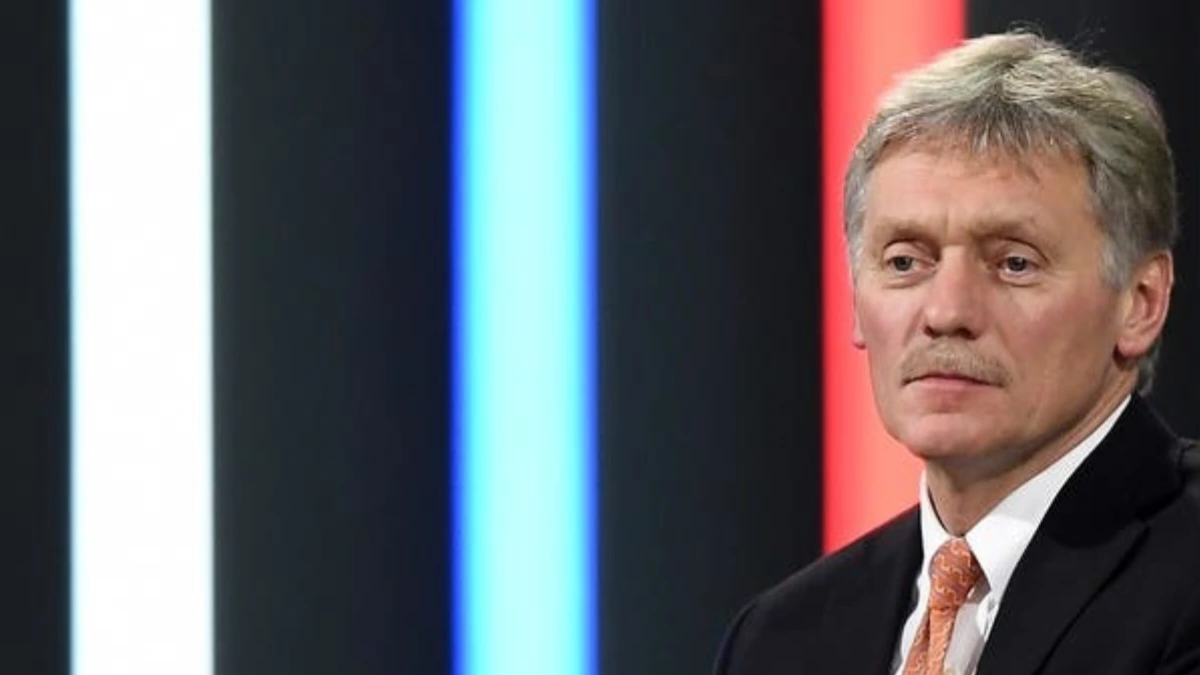MOSCOW — The Kremlin said Wednesday that contact between Britain’s national security adviser and a senior Russian foreign policy aide failed to develop into meaningful dialogue, underscoring the deep chill between Moscow and Western capitals over the war in Ukraine.
Kremlin spokesman Dmitry Peskov confirmed that talks took place between Jonathan Powell, Britain’s national security adviser, and Yuri Ushakov, a longtime aide to President Vladimir Putin, but added that the discussions “did not continue.”
“There were indeed contacts,” Peskov told reporters. “A dialogue took place, but it did not continue.”
The comments followed a report by the Financial Times that Powell had sought to open a back channel to the Kremlin amid growing concerns that the administration of former US President Donald Trump might sideline European allies in discussions about Ukraine.
Britain has been one of Ukraine’s most vocal backers since Russia launched its full scale invasion in February 2022. London has provided billions of pounds in military and humanitarian aid, trained Ukrainian troops, and imposed sweeping sanctions on Moscow.
However, with a possible change in U.S. foreign policy direction under Trump’s expected re-election bid, European powers have explored potential diplomatic routes to ensure their own security interests are protected.
The Financial Times reported that Powell’s outreach was viewed in Moscow as an informal attempt to gauge Russia’s stance and explore “de-escalatory” measures.
Peskov said the talks revealed a “lack of any intention or desire” on the British side to listen to Russia’s views. “During this contact there was an acute desire of the interlocutor to talk about the position of the Europeans and there was a lack of any intention or desire to listen to our position,” he said.
The Kremlin has repeatedly accused Western countries of refusing to acknowledge Russia’s security concerns, particularly over NATO’s eastward expansion and Western arms deliveries to Kyiv.
Analysts say the failed dialogue reflects a broader diplomatic paralysis between Moscow and Western governments.
“Since 2022, communication channels between Russia and the West have almost completely collapsed,” said Dr. Elena Markova, a professor of international relations at the Higher School of Economics in Moscow. “What we are seeing now are isolated attempts at contact, but neither side trusts the other enough to make real progress.”
In London, defense analysts interpreted Powell’s outreach as part of Britain’s contingency planning, not a sign of policy softening.
“Back channels are a standard tool in diplomacy, especially during crises,” said Edward Hayes, a former British diplomat now at the Royal United Services Institute. “However, Russia tends to interpret such efforts as weakness rather than pragmatism, which complicates matters further.”
Western officials have repeatedly said that any negotiation with Moscow must be coordinated with Kyiv and based on Ukraine’s sovereignty and territorial integrity conditions Russia has so far rejected.
Since 2022, diplomatic engagement between Russia and Western powers has dwindled sharply. According to data compiled by the International Crisis Group, official bilateral meetings between Russian and British officials have dropped by more than 80 percent compared to pre war levels.
The European Union and G7 nations have imposed over 17,000 individual sanctions on Russian entities and individuals the most comprehensive sanctions regime ever imposed against a major economy.
Meanwhile, Moscow has strengthened its ties with non Western nations such as China, India, and Iran, shifting its foreign policy focus eastward.
In both Russia and the United Kingdom, ordinary citizens have expressed skepticism that renewed dialogue could change the current trajectory of the conflict.
“I don’t think anyone here believes the British government can influence Russia’s decisions anymore,” said Sergei Ivanov, a 42 year old engineer in St. Petersburg. “The trust is gone, and everything now depends on the battlefield.”
In London, reactions were similarly mixed. “It’s important to talk, even to your enemies,” said Margaret Clarke, a retired civil servant. “But as long as Russian missiles are hitting Ukrainian cities, these talks won’t mean much.”
Despite the stalled contact, some diplomats argue that informal channels may remain essential as the war drags on.
“Wars rarely end without dialogue, and even minimal contact can help prevent miscalculation,” said Andrew Cartwright, a senior fellow at the European Council on Foreign Relations.
“The challenge is to establish a format that doesn’t legitimize Russia’s aggression but still keeps communication open.” The Kremlin, however, gave no indication that it would seek further engagement with London.
Peskov’s remarks suggested Moscow sees little point in pursuing talks unless Britain shows what Russia considers a “realistic” understanding of its demands including recognition of Moscow’s control over annexed Ukrainian territories.
Western governments have consistently rejected those terms, maintaining that Ukraine’s internationally recognized borders must be restored before any lasting peace can be achieved.
The short-lived contact between Britain and Russia highlights the near total collapse of diplomacy between Moscow and Western capitals since the invasion of Ukraine.
While both sides occasionally test the waters for dialogue, deep mistrust and diverging objectives continue to block progress.
As the war approaches its fourth year, experts warn that communication breakdowns could heighten the risk of miscalculation in an already volatile region.
For now, the Kremlin’s message remains unchanged without a shift in Western policy, meaningful dialogue appears out of reach.
